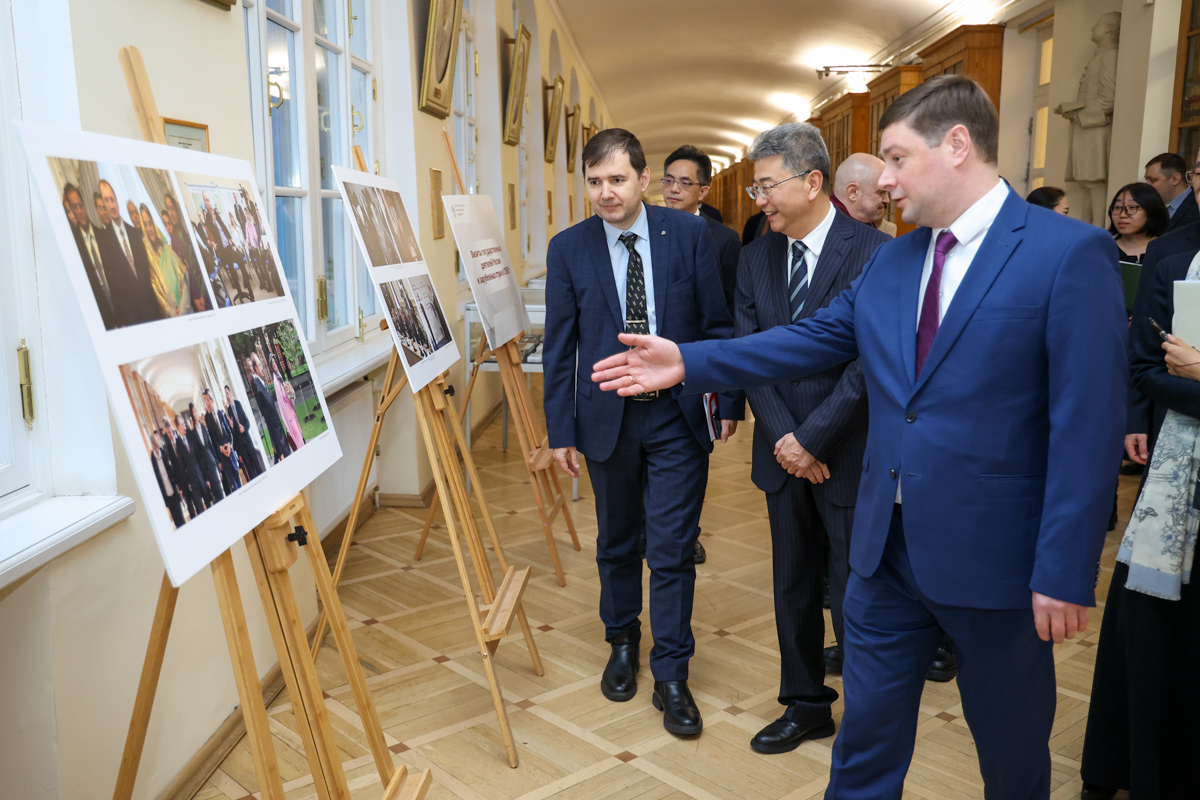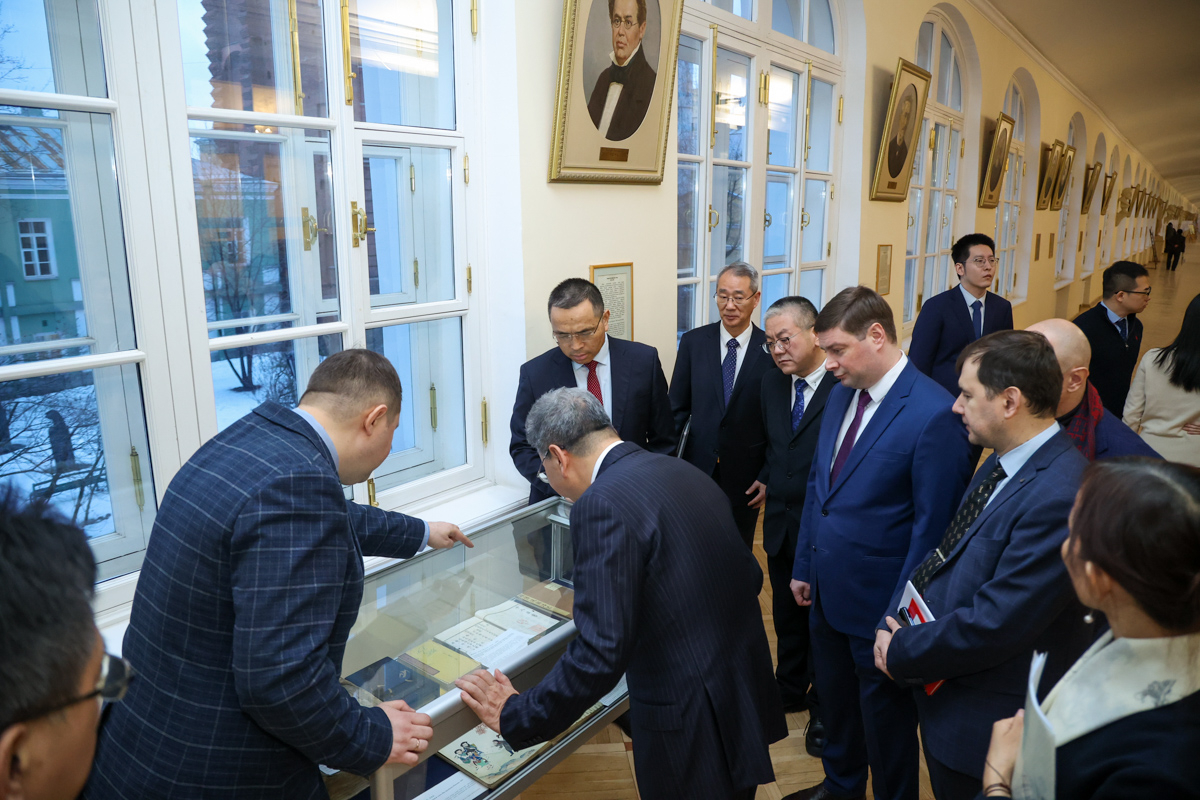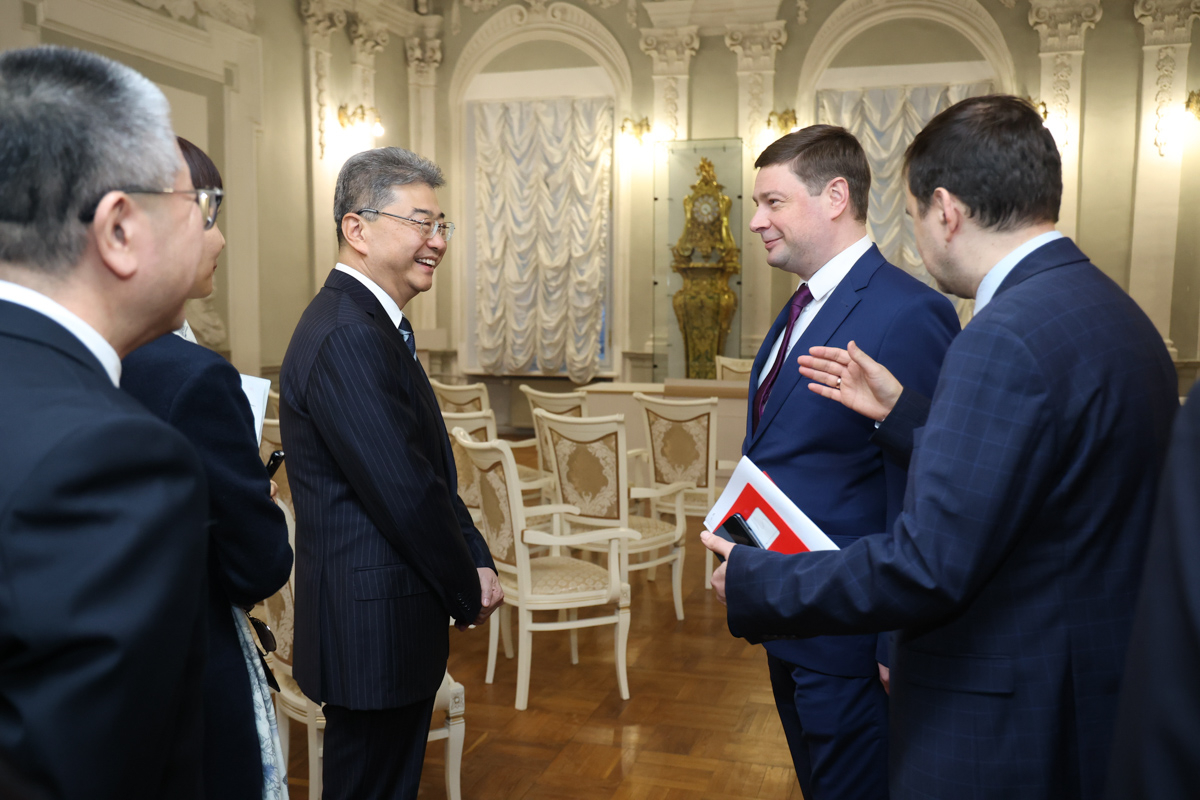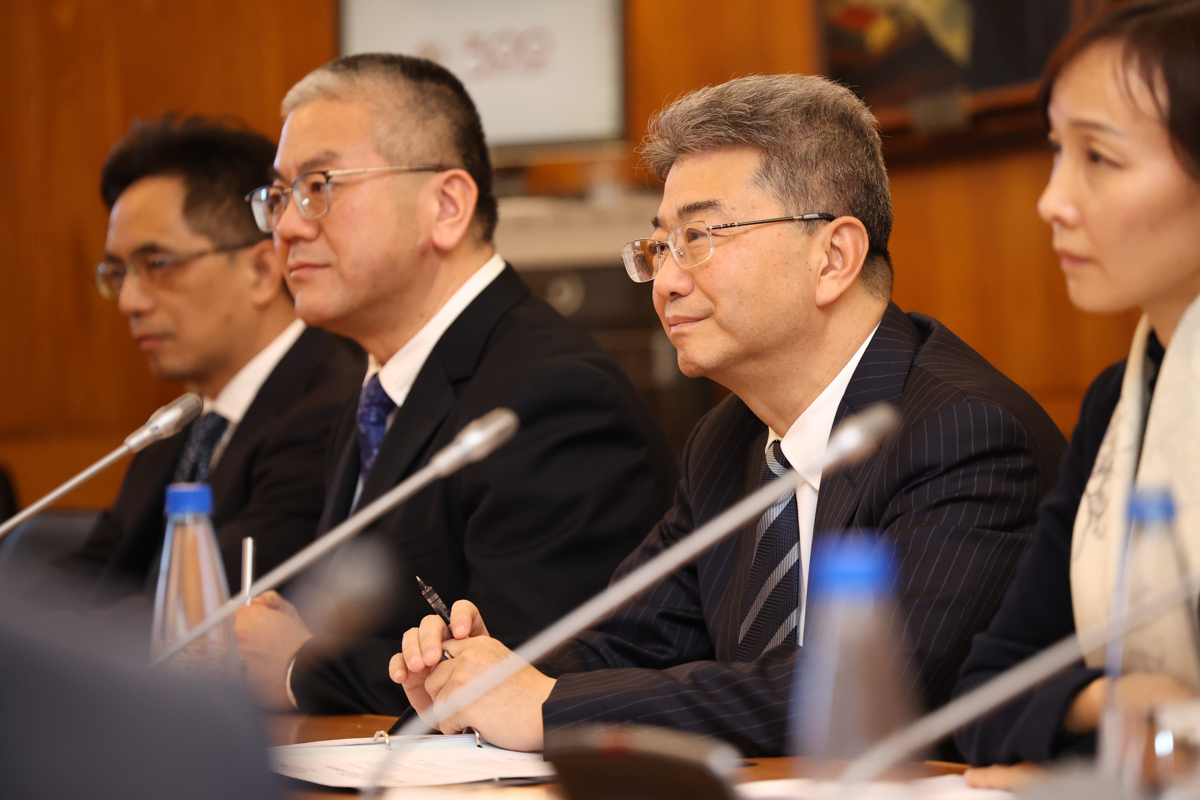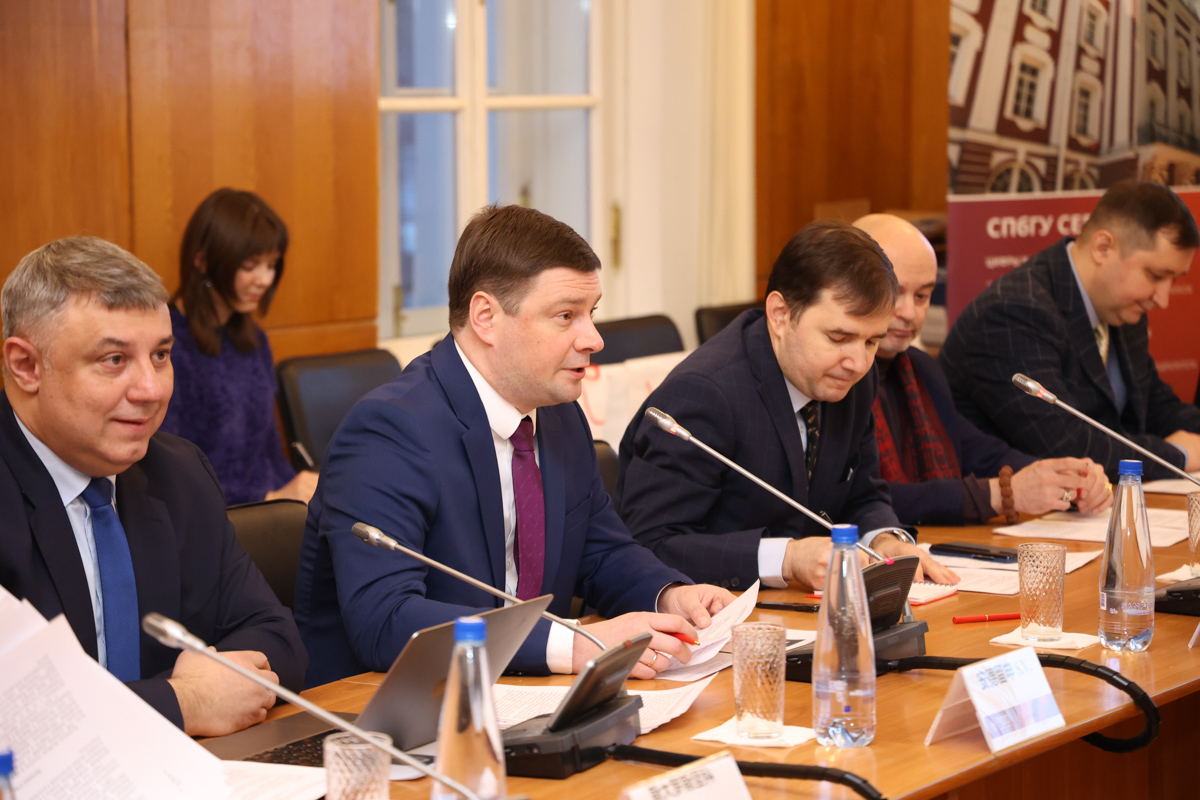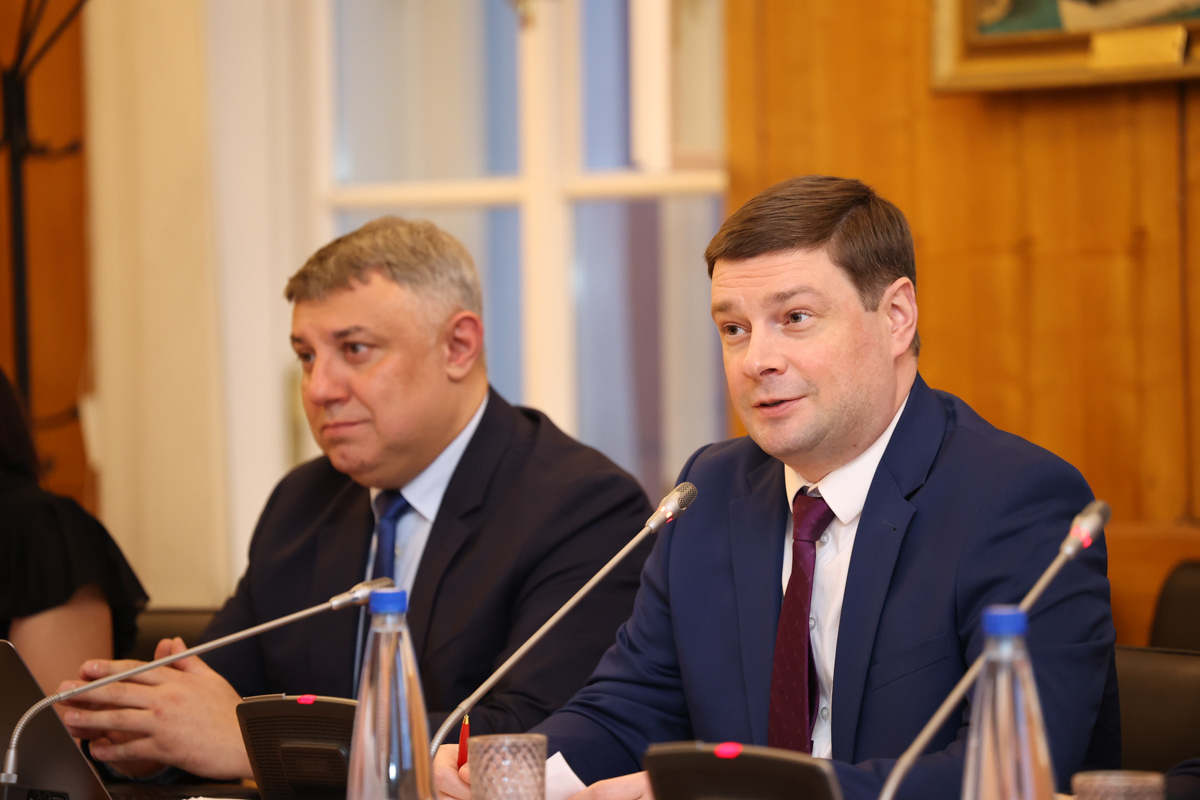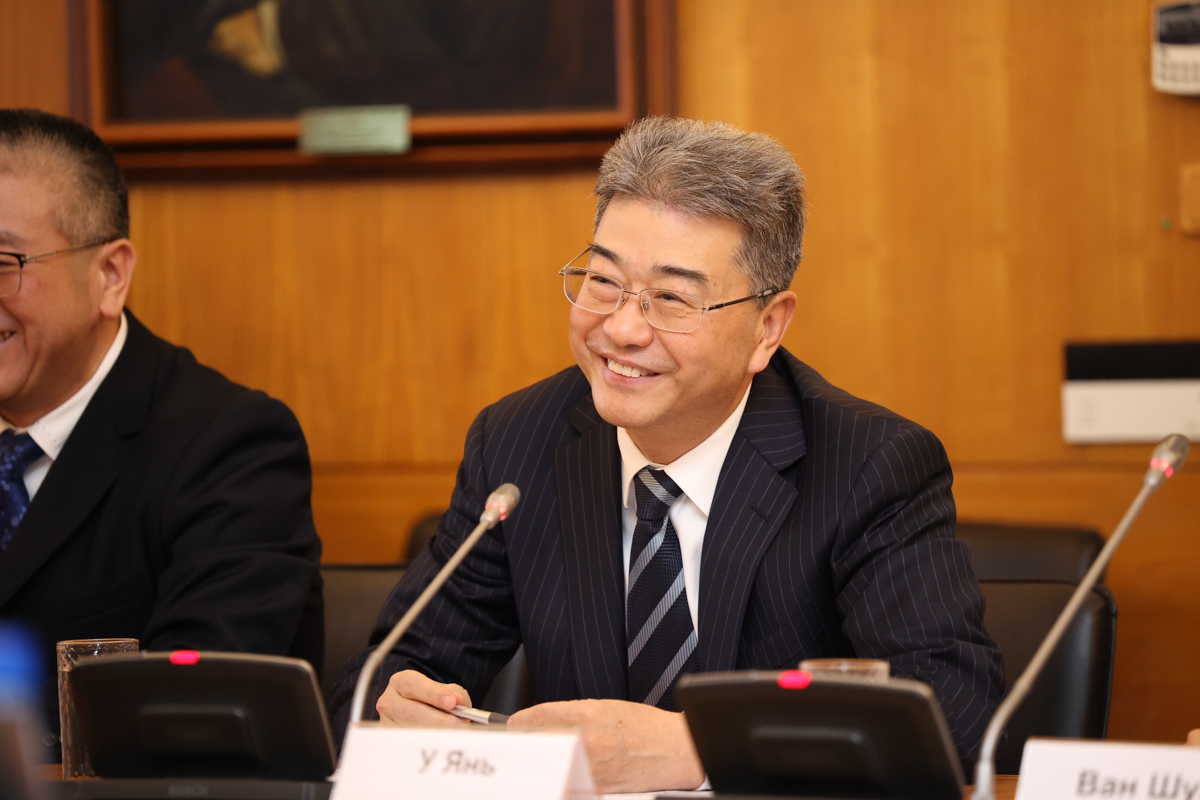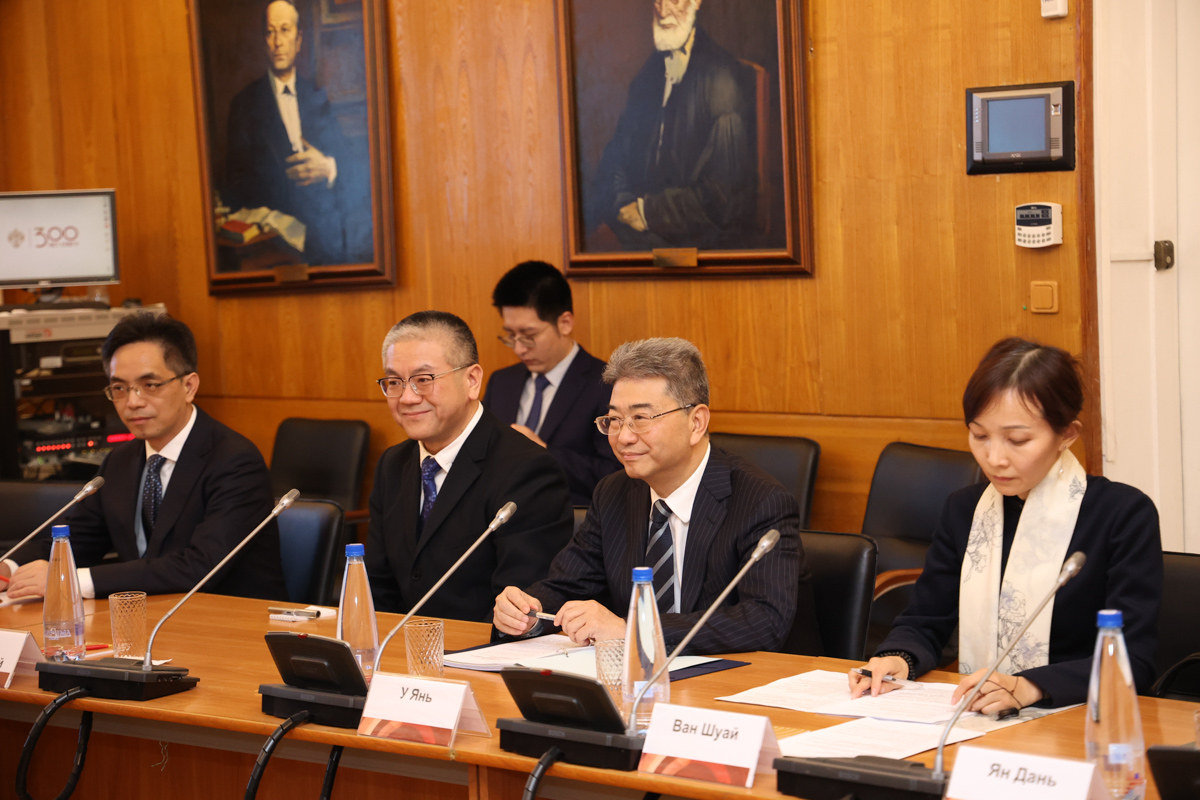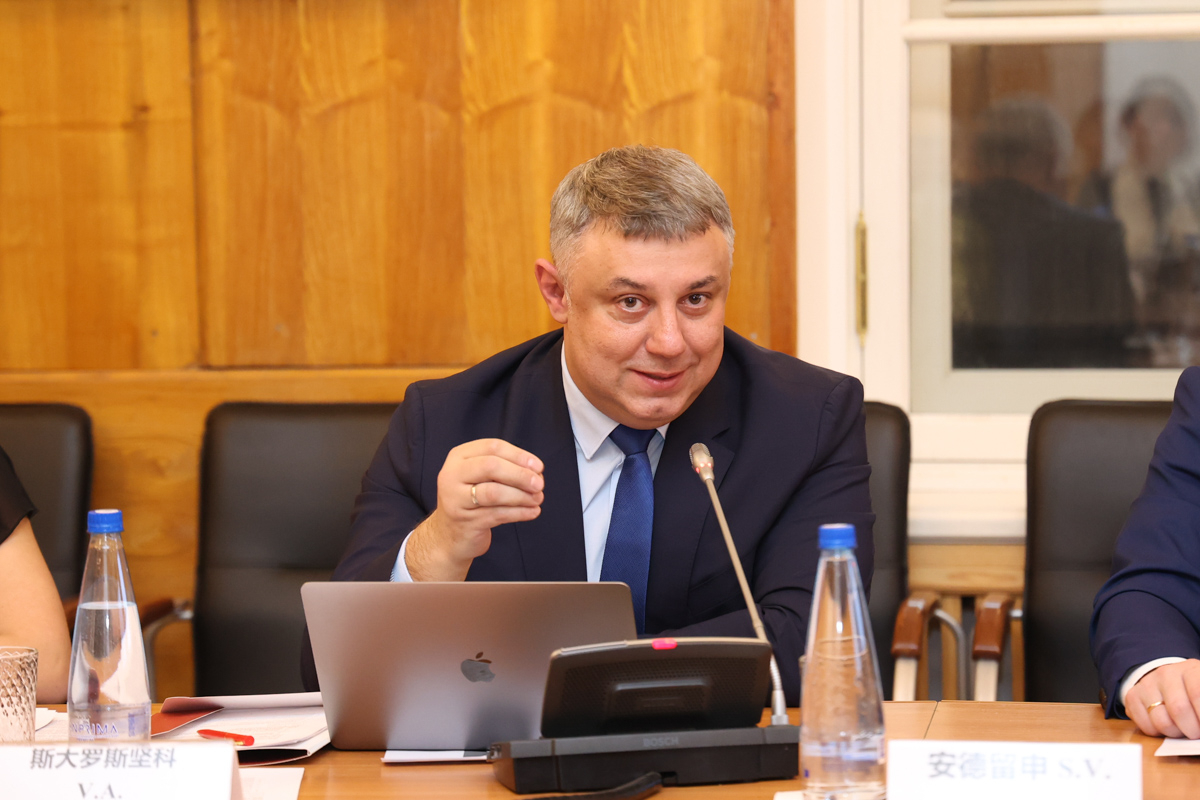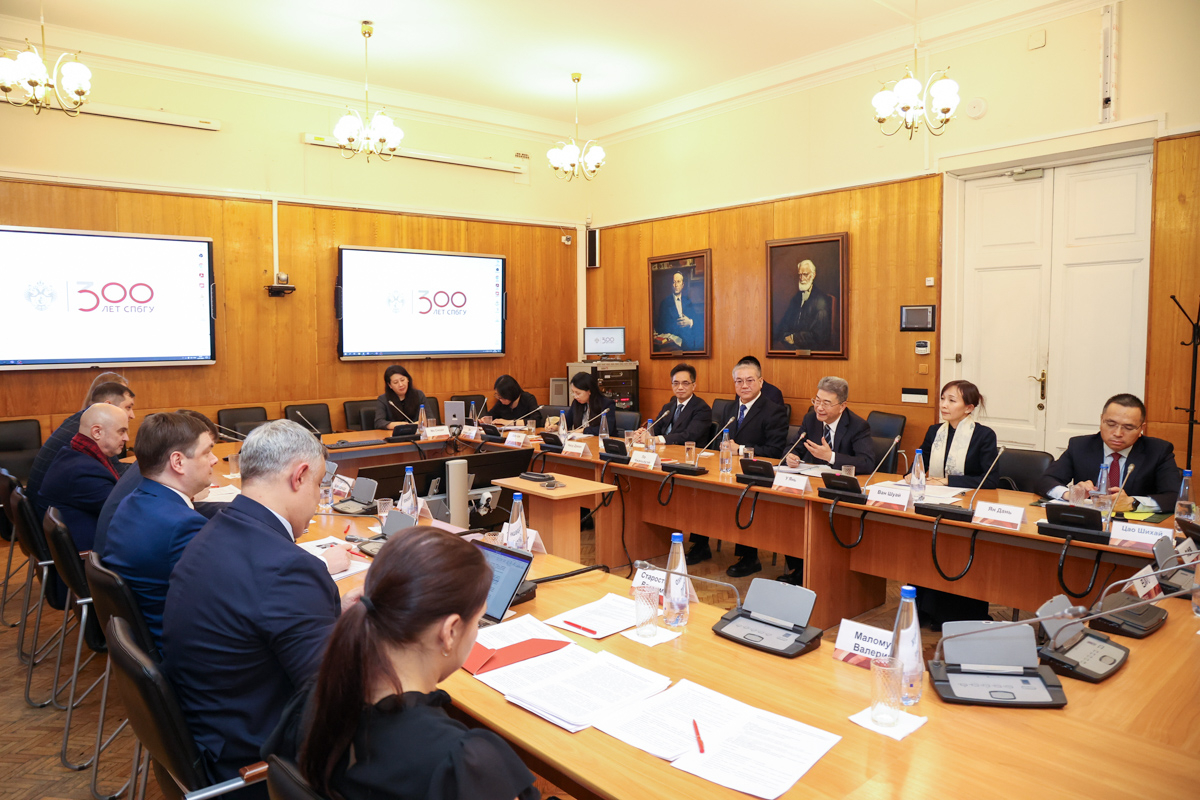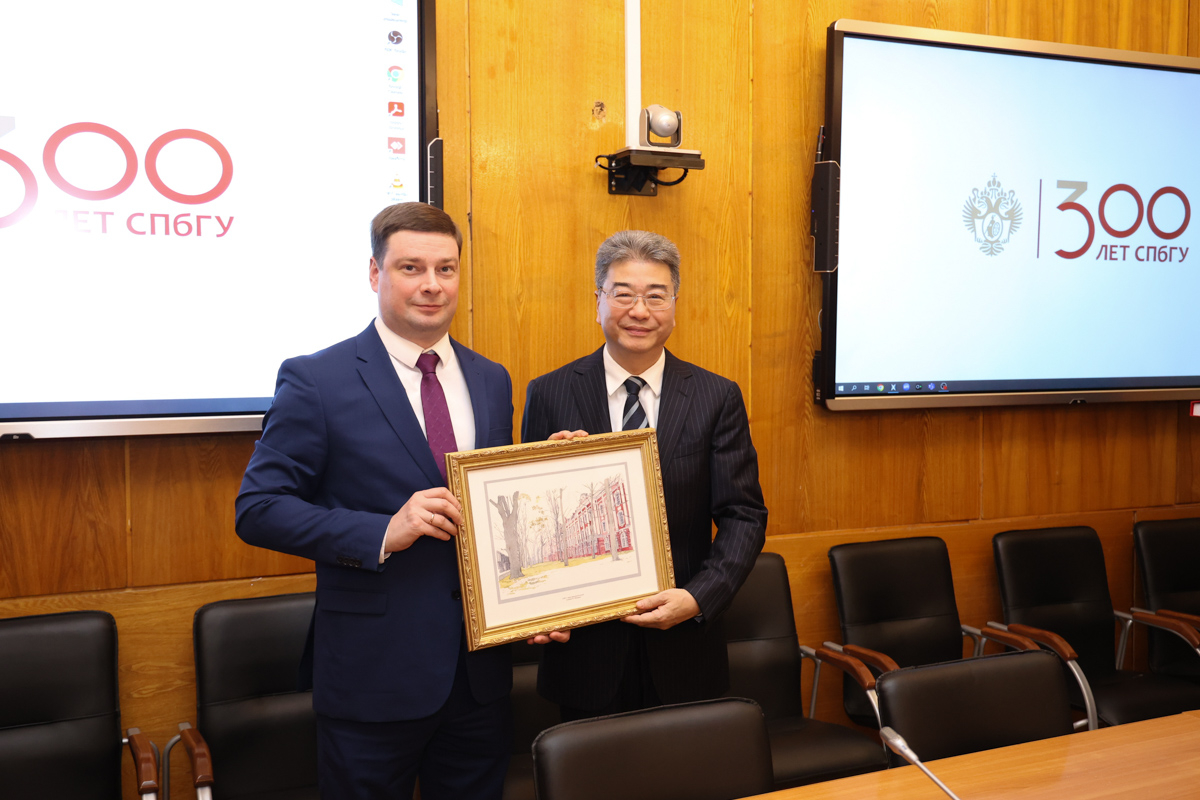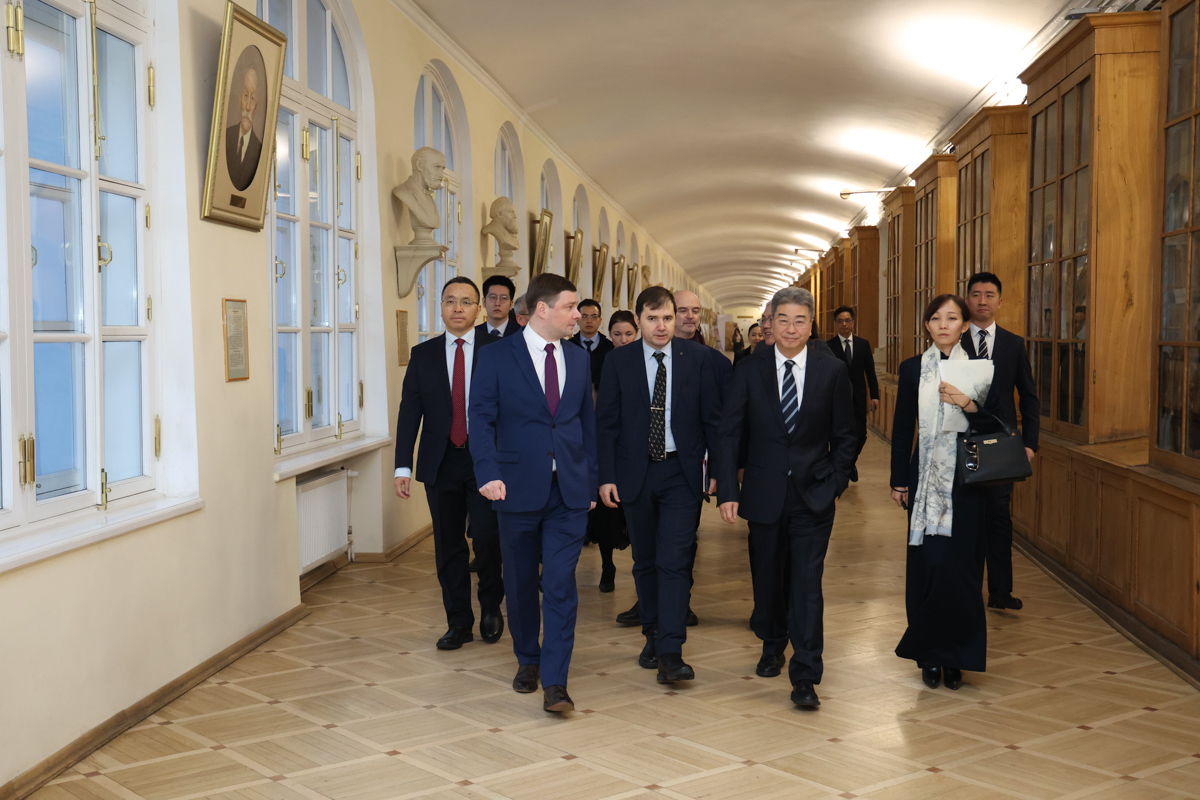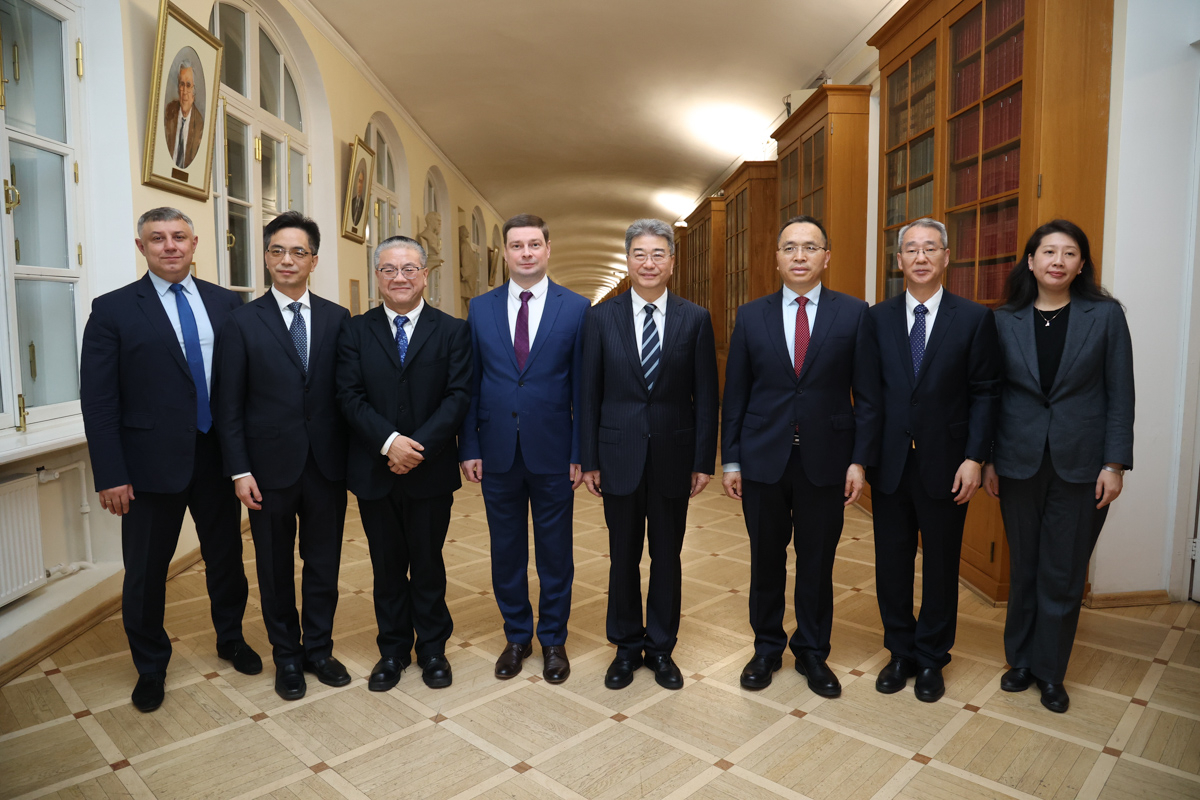Vice Minister of Education of the People’s Republic of China visits St Petersburg University
During his visit to St Petersburg University, Wu Yan, Vice Minister of Education of the People’s Republic of China, discussed opportunities for enhancing cooperation between Russian and Chinese universities, establishing joint institutions of higher education and sharing best practices in the digitalisation of education.
On behalf of Rector Nikolay Kropachev, the meeting was led by Acting Vice-Rector for International Affairs at St Petersburg University Sergey Andryushin. He emphasised that cooperation with China is a strategic partnership for St Petersburg University and is integral to all levels of interaction. Currently, over 2,500 Chinese citizens are studying at the University. The number of academic programmes with a Chinese component has more than doubled in the last five years, now exceeding 90. Sergey Andryushin noted that programmes with a Chinese component are highly popular among Russian students, as young people see promising prospects and ample employment opportunities in partnerships with China.
A successful project highly appreciated by Russian President Vladimir Putin and Chinese President Xí Jìnpíng is the joint campus established by St Petersburg University and the Harbin Institute of Technology. Students have been taught on the joint campus for three years already, with their number growing and the list of academic programmes expanding.
Sergey Andryushin, Acting Vice-Rector for International Affairs at St Petersburg University
"The number of projects implemented by St Petersburg University in collaboration with Chinese partners is impressive. We have achieved these results thanks to your support and the cooperation agreement we signed with the Ministry of Education of the People’s Republic of China. We have many more initiatives that we would like to propose to you," said Sergey Andryushin.
Wu Yan, Vice Minister of Education of the People’s Republic of China, shared that this was his third visit to St Petersburg University. As a former chemistry student, he has always been delighted to visit the place where the outstanding Russian scientist Dmitri Mendeleev worked and taught, and where the Dmitri Mendeleev Museum and Archives are now located. Dr Wu Yan expressed his commitment to promoting stronger cooperation between St Petersburg University and leading Chinese universities, particularly in the fields of basic science and engineering.
St Petersburg University, which celebrated its 300th anniversary last year, is one of the leading universities both nationally and globally. In the People’s Republic of China, it is a popular and prestigious choice for university studies.
Wu Yan, Vice Minister of Education of the People’s Republic of China
"China and Russia are comrades-in-arms and long-standing friends. Today, amidst a complex global political landscape, our countries are powers that can make a significant contribution to the world’s development," said Wu Yan, Vice Minister of Education of the People’s Republic of China.
During the meeting, the parties explored opportunities for establishing new Russian-Chinese universities in China, drawing on the University’s experience in creating a joint campus with the Harbin Institute of Technology in Harbin. They also discussed the necessity of sharing experiences in the digitalisation of education to develop new common approaches in this area.
Vladimir Starostenko, Acting Vice-Rector for Digital Transformation and Information Security at St Petersburg University, highlighted that the University is a national leader in online education. St Petersburg University is one of the founders of the Russian National OpenEdu platform that features contributions from all leading Russian universities. Currently, the number of external users of the University’s online courses exceeds four million.
"St Petersburg University actively collaborates with Chinese partners in the field of distance learning. We were the first Russian partner of China’s largest national massive open online courses platform, XuetangX," said Vladimir Starostenko. "In 2020, at the invitation of Tsinghua University, St Petersburg University became a co-founder of the Global Alliance for Massive Open Online Courses and Online Education (Global MOOC Alliance), representing the Russian Federation. We have been actively participating in various projects of the Global MOOC Alliance, including the Global Hybrid Classroom, where our students have the opportunity to study online at universities in China and other partner institutions."
Vladimir Starostenko noted that, in response to the growing interest in studying the Chinese language, culture, and art among Russian students, the University continues to develop online courses to meet this demand. For example, St Petersburg University has created the online specialisation course "Chinese in five steps", which enables students to learn Chinese from scratch to the A2-B1 level. Over 150,000 students have already completed this course, and more than 30,000 have taken a course on the basics of Chinese characters. These courses are available to a wide audience and are also integrated into the University’s curricula. St Petersburg University also offers online courses in Russian as a foreign language, including courses on Russian for business communication. Vladimir Starostenko proposed offering these Russian language courses to universities in China for integration into their own academic programmes.
Vladimir Starostenko also discussed a project implemented at St Petersburg University to assess the quality of education, titled "Digital Student Profile". This initiative focuses on analysing student engagement in the teaching and learning process, including not just conventional data like subject grades and class attendance, but also participation in practical, educational, and extracurricular activities. By using artificial intelligence (AI) technologies and big data processing tools, the project identifies critical areas where student engagement may be lacking. This allows for timely detection of gaps in the learning process, enabling improvements in the quality of education. In the near future, the Digital Student Profile will also incorporate data from students’ online learning activities.
The experience of using AI-based tools in the teaching and learning process was discussed at the international conference "Dialogue of rectors: artificial intelligence and transformation of the future of universities and higher education". The conference resulted in a draft memorandum outlining guidelines for the use of AI in education. Vladimir Starostenko, Acting Vice-Rector for Digital Transformation and Information Security at St Petersburg University, invited Chinese colleagues to participate in the discussion and contribute to the document.
The event was also attended by Professor Alexey Rodionov, Senior Deputy Dean of the Faculty of Asian and African Studies at St Petersburg University; Professor Aleksandr Storozhuk, Head of the Department of Chinese Philology; and Dmitrii Maiatskii, Associate Professor in the Department of Chinese Philology at St Petersburg University. Following the meeting, the parties agreed to continue their collaboration. Additionally, Sergey Andryushin invited Dr Wu Yan to deliver an open lecture for St Petersburg University students and lecturers on education quality assessment and the use of new digital tools.
As part of the visit, the Chinese delegation was given a guided tour of St Petersburg University. The guests were shown rare Chinese manuscripts from the University’s collection and publications of literary and scientific works translated from Chinese into Russian by St Petersburg University academics.


